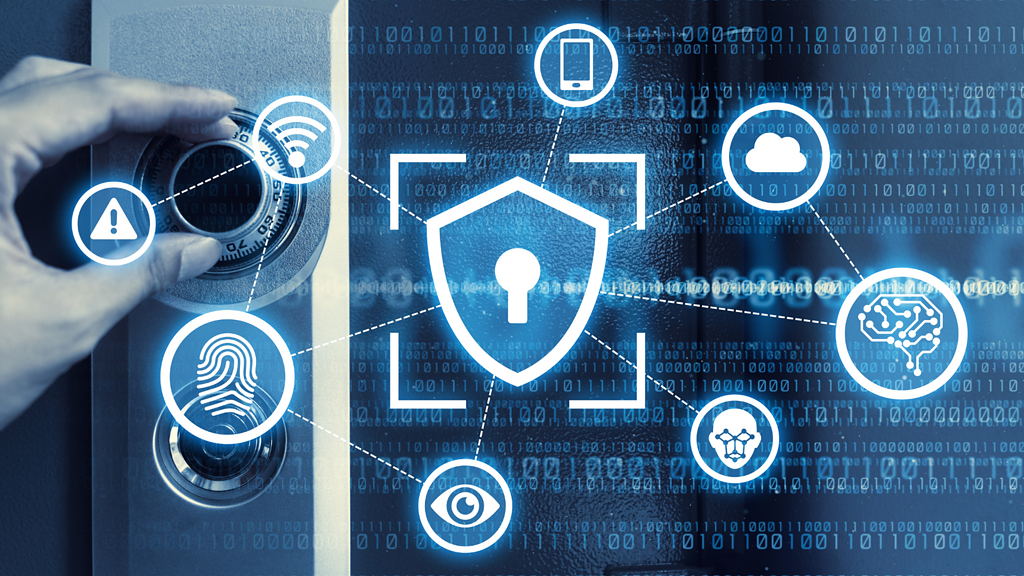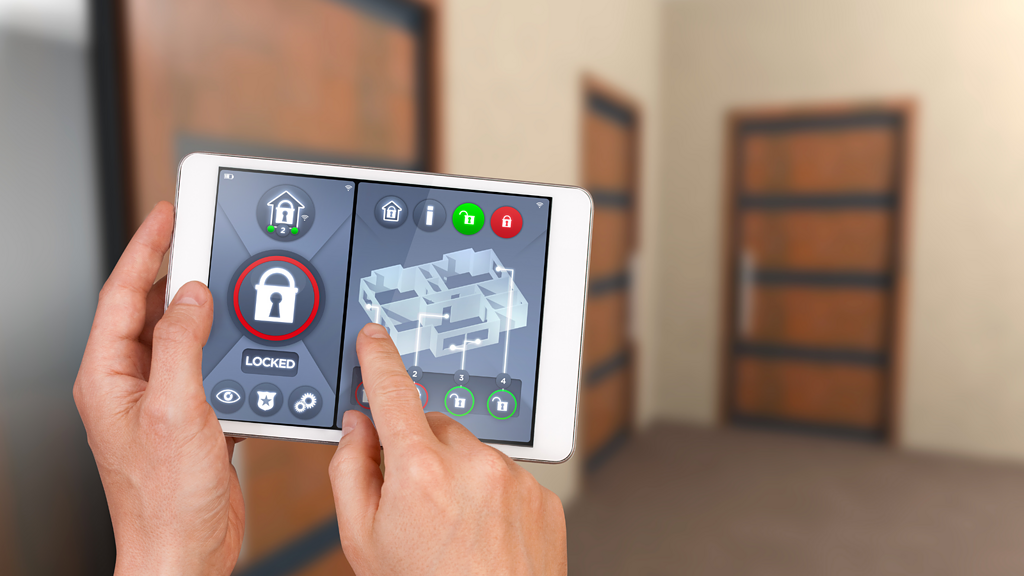If you’re a homeowner, I bet keeping your family’s safety sits high on your priority list. It’s one of those things that just feels essential, doesn’t it? You want your home to feel like a fortress where your loved ones and all your irreplaceable or expensive items stay safe and sound. That’s where smart home security systems step into the picture. These setups have popped up everywhere lately, and people can’t stop talking about them. They promise to keep your home and family protected with some pretty cool tech, but maybe you’re wondering if they really live up to the buzz—or if the price tag justifies it all. Let’s chat about it! We’ll dig into what these systems offer, how they function, and whether they make sense for you. Stick with me, and by the end, you’ll know if a smart home security system deserves a spot in your life.
What Are Smart Home Security Systems?
So, what’s the deal with smart home security systems? Picture a bunch of connected components and devices that team up to guard your home. It’s like a tech-savvy shield around your space. We’re talking door and window sensors, motion detectors, and security cameras—maybe even a doorbell camera—all tied to a main control panel that sounds off when trouble brews. The best part? These electronic devices connect straight to your smartphone. You can peek at your home no matter where you are. These home security systems lean on technologically advanced tricks, but here’s the kicker: you don’t have to spend a fortune or hold a tech degree to use them. They’re built to be simple, so anyone can feel secure without a headache.
How a Home Security System Works

Let’s break down how these systems do their thing. Imagine sensors perched on your doors and windows, a motion sensor keeping watch in the living room, and a camera posted at the front entrance. All these pieces chatter with a central hub—the brain of your setup. If someone nudges a door open when they shouldn’t, the sensor picks it up and pings the control panel. That little box can blast a high-decibel siren or alarm to scare off intruders in a heartbeat. But it doesn’t stop there. If you choose to have your system professionally monitored, it can notify a monitoring center too. They’ll reach out to you or call emergency response if needed. Pretty neat, right? Most systems today let you stay in charge with your smartphone. You can arm it from the office or peek at the camera feed while lounging on a beach somewhere. It’s all about that peace of mind, no matter where life takes you.
5 Benefits of a Home Security System
Okay, let’s get to the good stuff—why these systems might just win you over. I’ve narrowed it down to five benefits that really pack a punch for any homeowner.
Protect Your Home
First up, a home security system keeps your home safe. It’s like your trusty sidekick against break-ins. With door and window sensors on duty, motion sensors inside, and security cameras outside, you’ve got coverage everywhere. If someone tries to slip in, the system catches it fast. Some even toss in a glass-break sensor that hears a window shatter from across the room. That’s huge if a burglar thinks smashing glass is their ticket in. The base station ties it all together and makes sure every part hums along smoothly. It’s not just about nabbing thieves—it’s about making sure they don’t even get far. Your home stays a safe zone with this kind of setup.
Potentially Deter Burglaries
Next, let’s talk about scaring off the bad guys before they even start. Potential burglars don’t just barge in blind—they scope places out. When they spot a security camera or a sign shouting “Protected by Smart Security,” they hesitate. It’s like a silent warning that says your house isn’t an easy score. A home security system turns your place into a tough nut to crack. Burglars may be more likely to move along and look for a softer target down the street. It’s a low-effort way to keep trouble far from your doorstep without you lifting a finger.
Lower Your Homeowners Insurance Premiums
Here’s a perk that might surprise you: your wallet could thank you too. A home security system can reduce your homeowners’ insurance costs. Insurance companies love it when you take steps to protect your place. They figure a secure home means fewer claims for theft or damage. Some offer discounts as much as 15%, according to PolicyGenius, just for having a system in place. Not too shabby, huh? All you need to do is let your insurer know about your setup, and they’ll tweak your premium. It’s a sweet deal—extra safety plus some cash back in your pocket.
Remotely Monitor Your Home
Now, this one’s a game-changer: you can monitor your home from your phone. Whether you’re stuck at the office, sipping coffee across town, or chilling on vacation, you stay connected. Curious who’s ringing the bell? Check the doorbell camera. Worried you forgot to close the garage? A quick tap on the app sorts it out. Depending on your system, you can even remotely control thermostats, keyless door locks, and other smart devices in your home. It’s like your house follows you wherever you go. That kind of control hands you peace of mind you can’t put a price on.
Receive Gas and Fire Alerts
Finally, these systems watch out for more than just intruders. Many come with smoke and carbon monoxide detectors baked in. If your smoke alarms or carbon monoxide detectors go off, the system flags it fast. With professional monitoring, it can alert the pros too. That speed matters when fire or gas creeps in—every second counts. Some setups even pack temperature sensors to catch wild heat or cold spikes that spell trouble. It’s like your home gets a sixth sense for danger. You can sleep easy knowing the system has your back on all fronts.
How Much Does a Home Security System Cost?

Let’s get to the big question: how much is this going to cost you? The price tag on a home security system varies depending on what you choose—the brand, the features, and whether you want professional monitoring. Don’t sweat it, though—I’ll break it down so you know exactly what to expect.
Upfront Costs
When you buy a system, the upfront cost is your starting point. A basic package usually includes:
- A control panel
- Door and window sensors
- Motion sensors
- A base station
That’ll typically run you $200 to $300. Want to level up? Add security cameras (like a doorbell camera) or extras like:
- Glass-break sensors
- Smoke and carbon monoxide detectors
- Temperature sensors
These bump the price a bit higher, maybe closer to $500 or more. If you go for professional installation, tack on about $200—but here’s the kicker: many systems are DIY-friendly now. With a screwdriver and a free afternoon, you can set it up yourself and skip that fee entirely.
Monthly Costs
Next up: the ongoing stuff. If you choose professional monitoring, you’ll pay a monthly fee for 24/7 coverage—someone’s always ready to call for help if your alarm goes off. That’s usually $20 to $60 a month, depending on the plan. Rather keep it simple? You can self-monitor through a smartphone app for free, but you’ll be the one responding if something happens. Either way, most systems today tie into your phone, so you’re always in control.
The Bottom Line
Here’s a quick rundown:
- Basic DIY system: $200-$300 upfront, $0/month if you self-monitor.
- Professional setup: $500-$1,000 upfront, plus $30-$50/month for monitoring.
It’s an investment, no doubt. But when you factor in peace of mind and possible insurance discounts, it might balance out nicely.
Pro Tip: Hunt for deals! Some companies throw in free cameras or discounts for annual plans—shop smart and save.
Conclusion
So, are smart home security systems worth it? Let’s tie it all together. If family safety and home protection matter to you, these systems deliver. With sensors, cameras, and alarms working in sync, you’ve got a solid defense. You can check in from your phone, deter intruders, and maybe even lower your homeowners’ insurance. Bonus: features like gas and fire detection mean it’s not just about break-ins—it’s about total safety.